blog
Introducing Fermenting Data at PCD in Aarhus
In February I introduced Fermenting Data project during Processing Community Day which took place in DOKK1 in Aarhus. I was invited by the code&share community to talk about this curatorial research project.
I really like the title Fermenting Data because it immediately generates questions: ‘what is that?’, and ‘what does it mean?’. I have some ideas about what fermenting data could be for me, and I really like how this wild association of data and fermentation is a provocation to think about data differently. It is unusual to bring together data and fermenting because what would that look like?
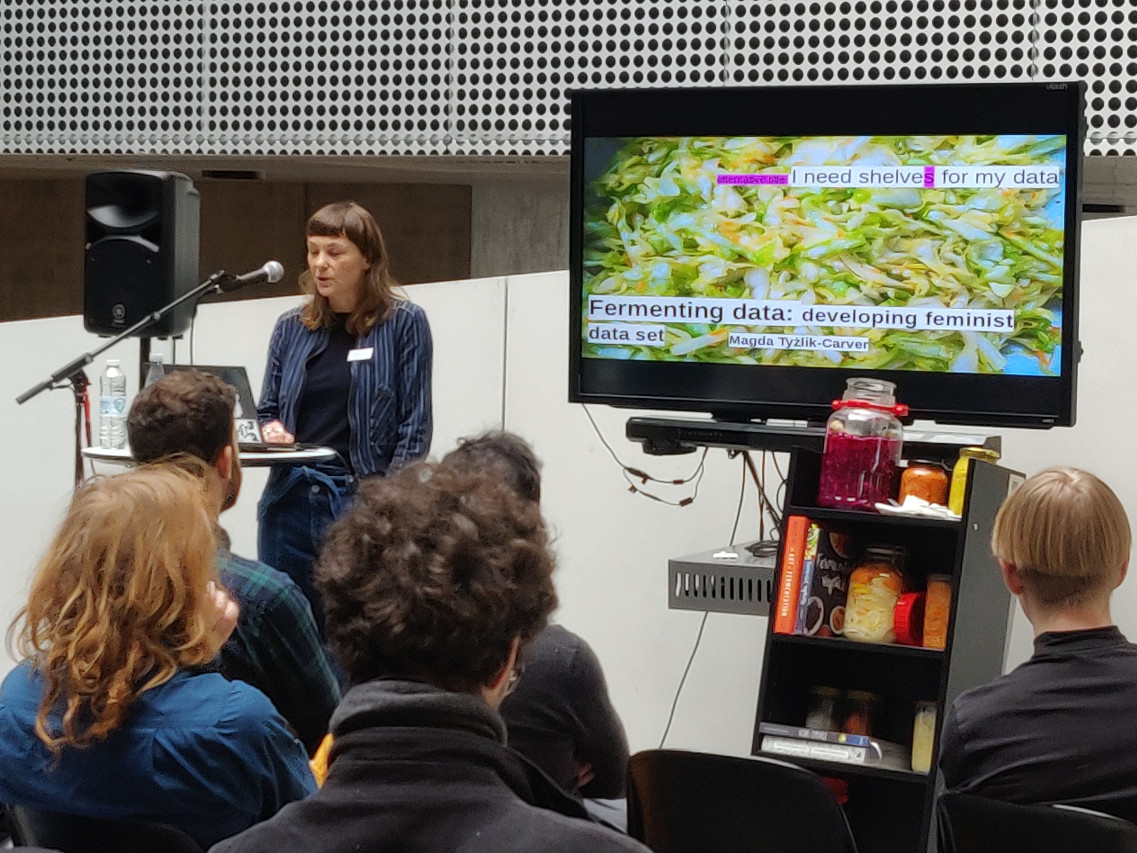
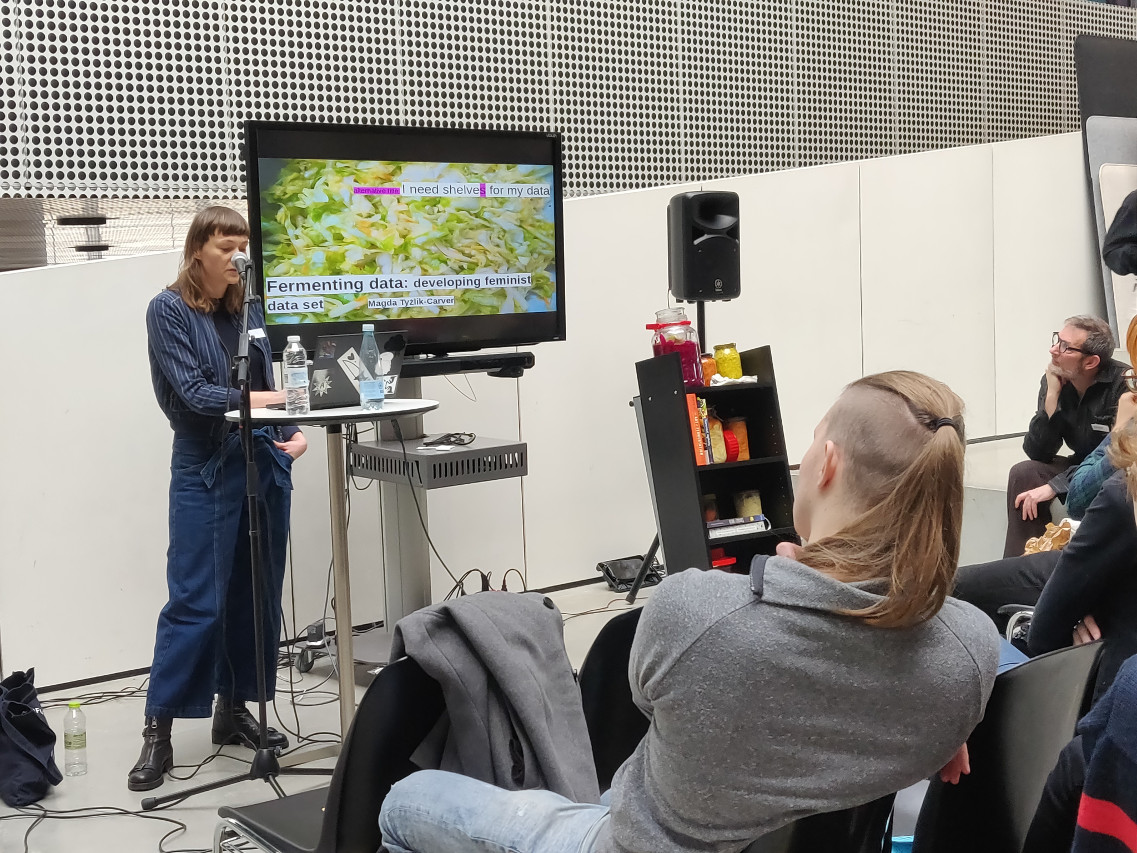
For me this project started as an inquiry into data to ask what data are, what are histories of data collection, storage and presentation. My curatorial practice influences what questions I ask and how I ask them and Fermenting Data is inspired by this. I am also influenced by my personal experience of fermenting that is part of so many families and cultures in Eastern Europe and beyond, and the more recent interest in fermenting across the world.
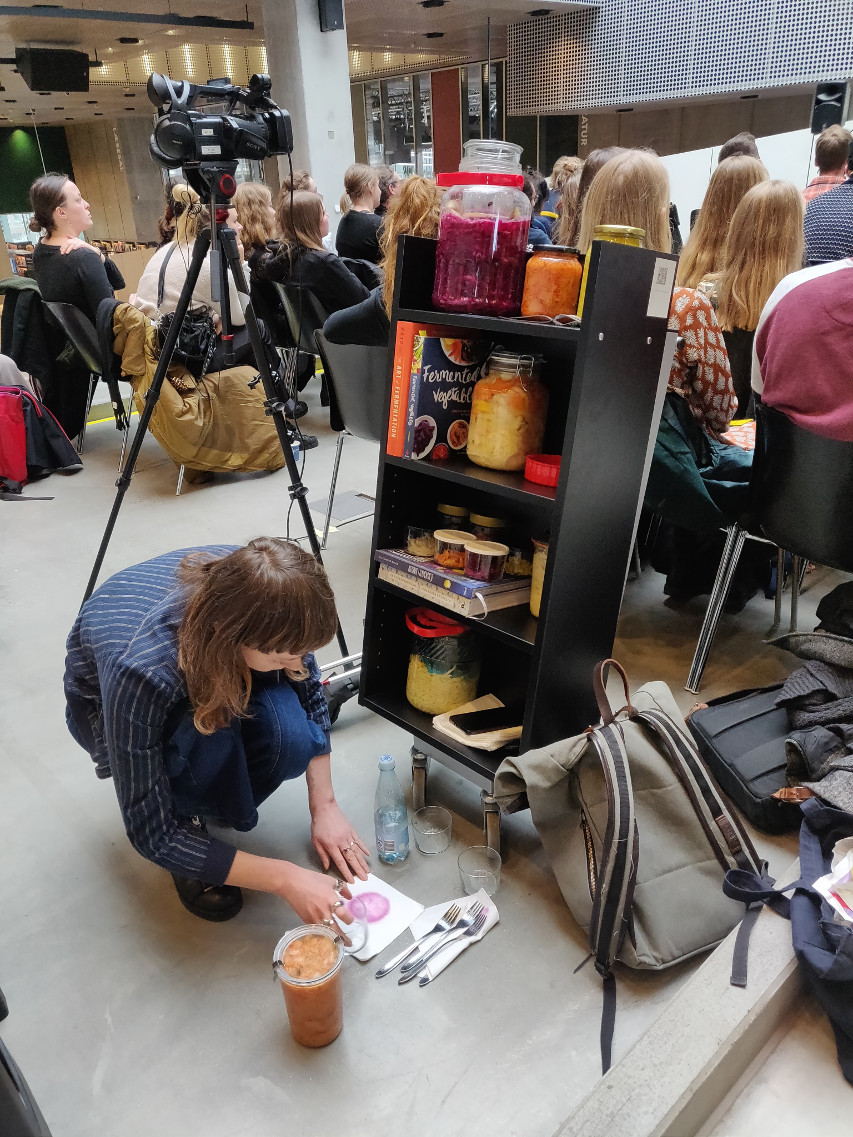
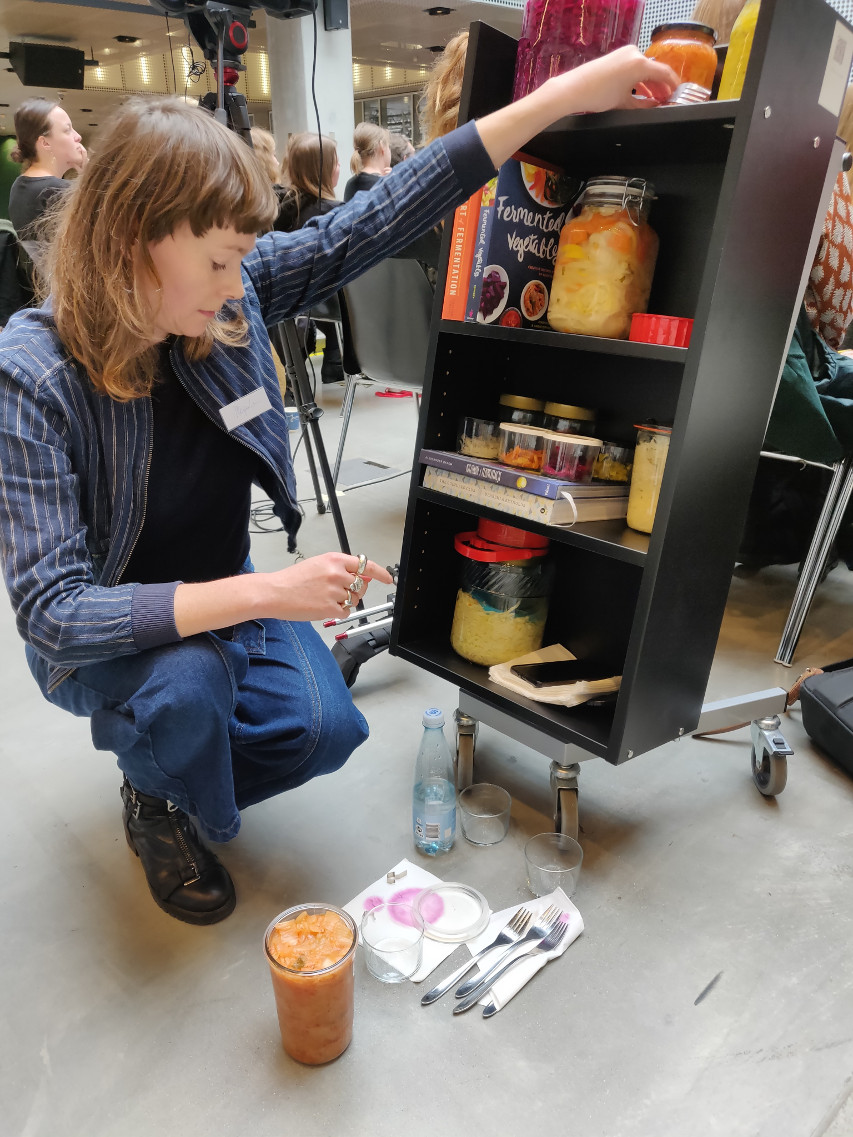
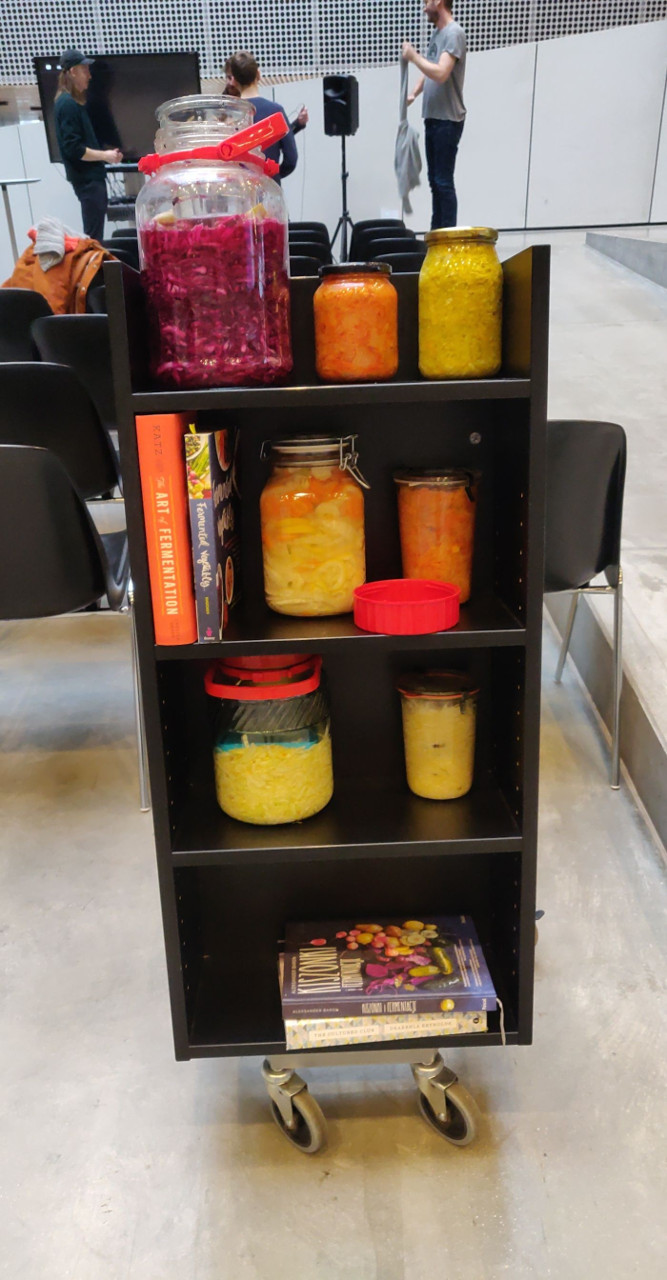
But Fermenting Data is also influenced by many recent projects which question data practices and their violence. For example, and this is by no means a full list:
- Feminist Data Manifest-No which is “a declaration of refusal and commitment. It refuses harmful data regimes and commits to new data futures.”
- Another interesting project by artist Caroline Sanders which is about building feminist data set for a feminist AI.
- Data Feminism a book by Catherine D'Ignazio and Lauren F. Klein which introduces “a new way of thinking about data science and data ethics that is informed by the ideas of intersectional feminism.”
- Or work by Yeshimabeit Milner, a co-founder and executive director of Data for Black Lives, who argues for abolishing big data. To abolish big data according to Milner is to “give it into the hands of people who need it the most.” See Milner's talk here.
And so Fermenting Data builds on these many traditions and engages curating, fermentation, data, feminist intersectional practices, art, and communities together to invent and discover new data practices and data futures.
Tags: blog, literature